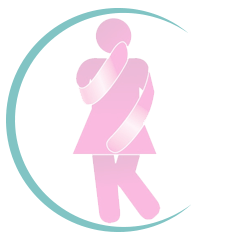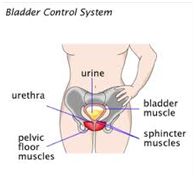
Urinary Incontinence
When you leak a small amount of urine, this is known as urinary incontinence. There are different types of urinary incontinence, but the most common are stress incontinence and urge incontinence. It affects about 20% of people over 40 years of age and is more prevalent in females.
Stress incontinence is caused by increased pressure in the abdomen for example when you cough, sneeze, run, jump or lift something heavy. Urge incontinence is caused by an overactive bladder. It is characterised by strong ‘urges’ to go to the toilet and not making it in time.
Urinary incontinence can have a big impact on your quality of life. Close to one-third of women have reported that it affected their social life as they were unwilling to go to places where they were unsure about the availability of toilets. 23% of women reported that it affected their sex life and compromised exercise and activity levels. Many women find it embarrassing to talk about and don’t seek medical help, but physiotherapy can help.

One of the main causes of incontinence is weak pelvic floor muscles. For women, pelvic floor muscles are usually weakened by pregnancy and childbirth.During pregnancy, the extra weight and changes in hormones weaken your pelvic floor (the muscles, ligaments and tissues that support the bladder). The pelvic floor is further weakened during natural delivery of the baby. After menopause, the body produces less of the female hormone, oestrogen,which normally keeps the pelvic floor strong.
The treatment you receive will depend on the type of urinary incontinence you have and how severe it is. Treatment can include:
- Women’s health physiotherapy
- Lifestyle changes such as losing weight, drinking more water and cutting down on caffeine, alcohol and smoking
- Medication to help relax the bladder muscles, which play an important role in urge incontinence
- Surgery may be required in severe cases where physiotherapy or medication have not been worked
Research has shown that pelvic floor strengthening and lifestyle changes are cheaper and more effective than incontinence drugs. In July 2018 the UK Government announced plans to pause the use of vaginally inserted mesh and tape to treat stress urinary incontinence and pelvic organ prolapse in England. They recommend that in the first instance, patients should be referred to a women’s health physiotherapist for pelvic floor strengthening.
How can we help with urinary incontinence?
Your physiotherapist will provide you with strengthening exercises for your pelvic floor and core muscles. In the case of an overactive bladder, relaxation exercises are taught, as well as bladder retraining. Biofeedback and electrical stimulation may also be used during your physiotherapy session.
07495 834716
CALL US
